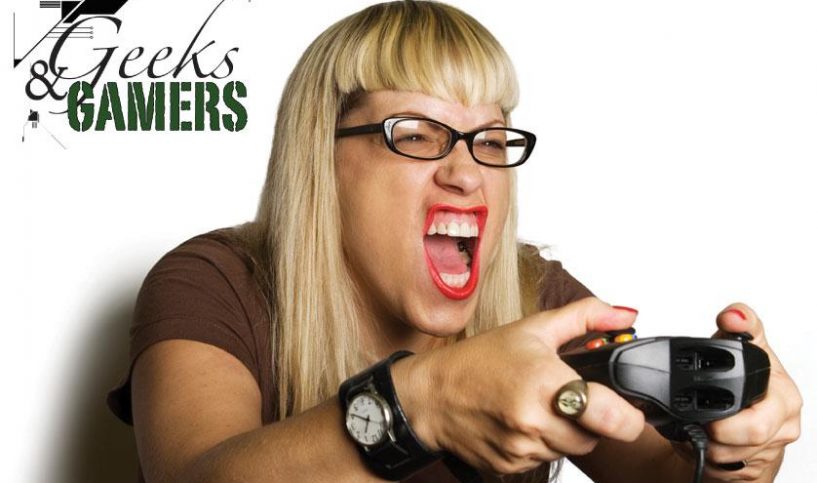by Jaye Sonia
When I was younger, I was led to believe that girl gamers (and female geeks in general) simply did not exist. They were these elusive creatures that, like so much of myth and fantasy, didn’t live in the waking world. I had a hard time believing this, but it was reiterated to me over and over. Sadly, like so many male geeks, I grew to believe this illusion. Not because it was true, but because the truth was hidden.
(An illusion, I’d like to add, that is still perpetuated in popular media to this day – and one that we would all do well to toss out with the rest of the late 18th century so many people insist on hanging onto…)
Of course, as I grew older and borders began to grow thinner, the electronic world expanded – with the Internet leading the charge and console games sweeping into effective flanking positions. Gaming (and geek culture in general) began to wake from its slumber, wipe the sleep from its eyes, and toss out the Mountain Dew-stained stereotype it had acquired in the 1980s. The law of percentages would play out, as well. For all the guys that embraced their inner geek, there were one or two girls coming out of their proverbial geek closets beside them. They grabbed their favorite comics and game controllers, and started to make their presence known. Empowered by one another, they peeled back the digital darkness and formed their own social networks.
Even with their public appearances proving their very existence, there still seemed to be this idea… this stereotype that disempowered them. That a girl could fill a role beyond the powerless princess that Nintendo championed in the 1980s was a concept alien to a lot of male gamers. It was, in a way, because of how we were trained to think. We wanted to play heroes that rescued the princess, so obviously, there needed to be these girl gamers to play princess! But with time, our ideas of play began to change and the competitive nature of gaming – from first person shooters to old school Gran Turismo – won out. The idea that girl gamers were locked into a single role began to fall away; one crushed Mario Mushroom at a time.
I believe it was in the late 1990s when I first encountered these girl gamers, out there playing, slowly coming into view. When I first met them, though, the tableside talk most of my fellow (male) gamers engaged in was simple. Sure, there were girl gamers – but they couldn’t (or wouldn’t) be serious gamers. They simply didn’t possess the fire for it and they only gamed to make their boyfriends happy.
As I got older, I met more and more girl gamers. By the time World of Warcraft and HALO were out, this view had completely changed. Girls were no longer an army of powerless princesses, but rather forces to be reckoned with – and highly sought after! We male gamers wanted to find these elusive creatures! We wanted girls that could sit down and game!
Of course, in order for this to happen, we had to accept them as equals. They could no longer be secondary citizens, a subservient sector of our gaming culture who we only listened to when we had our headsets on! And our girl gamer counterparts knew that. In fact, they took it upon themselves to celebrate their very nature socially. Web sites like www.girlgamer.com and www.geekgirlsnetwork.com were born and women like Felicia Day (The Guild, Buffy the Vampire Slayer, and Eureka) struck the final blow. And with each passing day, another girl gamer stepped out into the light.
Personally, I’ve watched this transition take place in two worlds. It started in the United States (where it continues). But I’ve also watched it take place here in Kuwait, as well. In fact, you’d think that, by comparison, I would have actively gamed with more girls Stateside than I ever did here in Kuwait. But that’s not so.
In fact, the average here in Kuwait has been much higher. I’ve averaged 2-3 girls at my games and, on some occasions, seen as many girls playing as men. These girls have been from all over – from the United States, from Egypt, from Pakistan, and even, on one occasion, from Kuwait. It’s a fact that several of my friends stateside continue to comment on (I think, to some degree, with a level of jealousy).
My theory, of course, is that with so many of us expats being thrown into a single culture that is not necessarily our own, we’ve sought out a community – through gaming – where one does not normally exist. And, because we all love gaming, we naturally gravitate toward one another!
Regardless of why they game, I, for one, am happy to have them!










